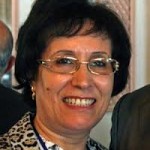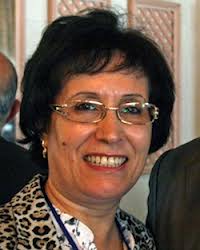India Education Diary
 Madison: Fatima Sadiqi, who founded a women’s organization working on family law reforms and women’s rights in her native Morocco, will speak on “North African Women’s Rights in the Aftermath of the Arab Spring” as this year’s J. Jobe Soffa and Marguerite Jacqmin Soffa Distinguished International Visitor at the University of Wisconsin-Madison.
Madison: Fatima Sadiqi, who founded a women’s organization working on family law reforms and women’s rights in her native Morocco, will speak on “North African Women’s Rights in the Aftermath of the Arab Spring” as this year’s J. Jobe Soffa and Marguerite Jacqmin Soffa Distinguished International Visitor at the University of Wisconsin-Madison.
Sadiqi, a professor of linguistics and gender studies at the University of Fes, is a pioneer in women’s rights and continues her activism to include women in the post-“Arab Spring” processes of democratization in the region. She will deliver the Soffa Lecture on Thursday, Nov. 8 at 4 p.m. at Union South. The lecture, free and open to the public, is sponsored by the UW-Madison Division of International Studies.
The J. Jobe Soffa and Marguerite Jacqmin Soffa Distinguished International Visitor Fund supports regular lectures on contemporary issues of global significance. Marguerite Jacqmin Soffa, who received a bachelor’s degree from the College of Letters & Science in 1946, established this fund to bring renowned women from around the globe to lecture. Speakers have included well-known leaders in the struggle for human rights and understanding.
Through her writing, networking with other Moroccan women and agitating through the press, Sadiqi played a leading role in successfully pushing for important changes in Moroccan family law to entitle women to a range of civil rights.
These include raising the minimum marriage age from 15 to 18, restricting polygamy, and no longer allowing men to unilaterally “repudiate” (divorce) their wives without compensation. Last year, she was involved in the latest campaign against early marriage, raising awareness following the suicide of Amina Filali, a 16-year-old Moroccan girl who was forced to marry.
In her work, Sadiqi found that those who speak only Berber – viewed as a “female language” associated with the home and hearth – lack access to information and resources in Morocco, where Arabic, French and English are the dominant languages. Most Berber-only speakers are women who do not attend school and are illiterate. Largely as a result of her work, in the new 2011 constitution, Berber has been raised to the status of an official language
“I have always stressed the powerful connections between language and women’s rights. I see the official recognition of Berber as a recognition of Berber women. I have also struggled for the inclusion of women’s voices in Moroccan education and help democratize our higher education by introducing gender studies. … The moment you gain languages you also gain access to the language of the media, the government, the mosque – and you start speaking the language of authority,” Sadiqi says.
Sadiqi, a former Fulbright Scholar and Harvard Fellowship recipient, founded the first Moroccan Centre for Studies and Research on Women in 1998, the first graduate program on gender studies in 2000 at the University of Fes, and the Isis Center for Women and Development, a nongovernmental organization focused on family law reforms and women’s rights in Morocco. She co-founded the International Institute for Languages and Cultures with her husband, Moha Ennaji, and in 2009 was elected president of the National Union of Women’s Organizations, which seeks to promote and sustain women’s rights.
She was appointed by United Nations Secretary-General Kofi Annan to the UN Committee for Development Policy and by the king of Morocco to the administrative board of the Royal Institute of the Amazigh Culture.
She is author of “Women, Gender, and Language in Morocco” (Brill, 2003) and co-editor of “Women Writing Africa: The Northern Region” (The Feminist Press, 2009), and “Women in the Middle East and North Africa: Agents of Change, and Gender and Violence in the Middle East” (Routledge 2010 and 2011).
.





